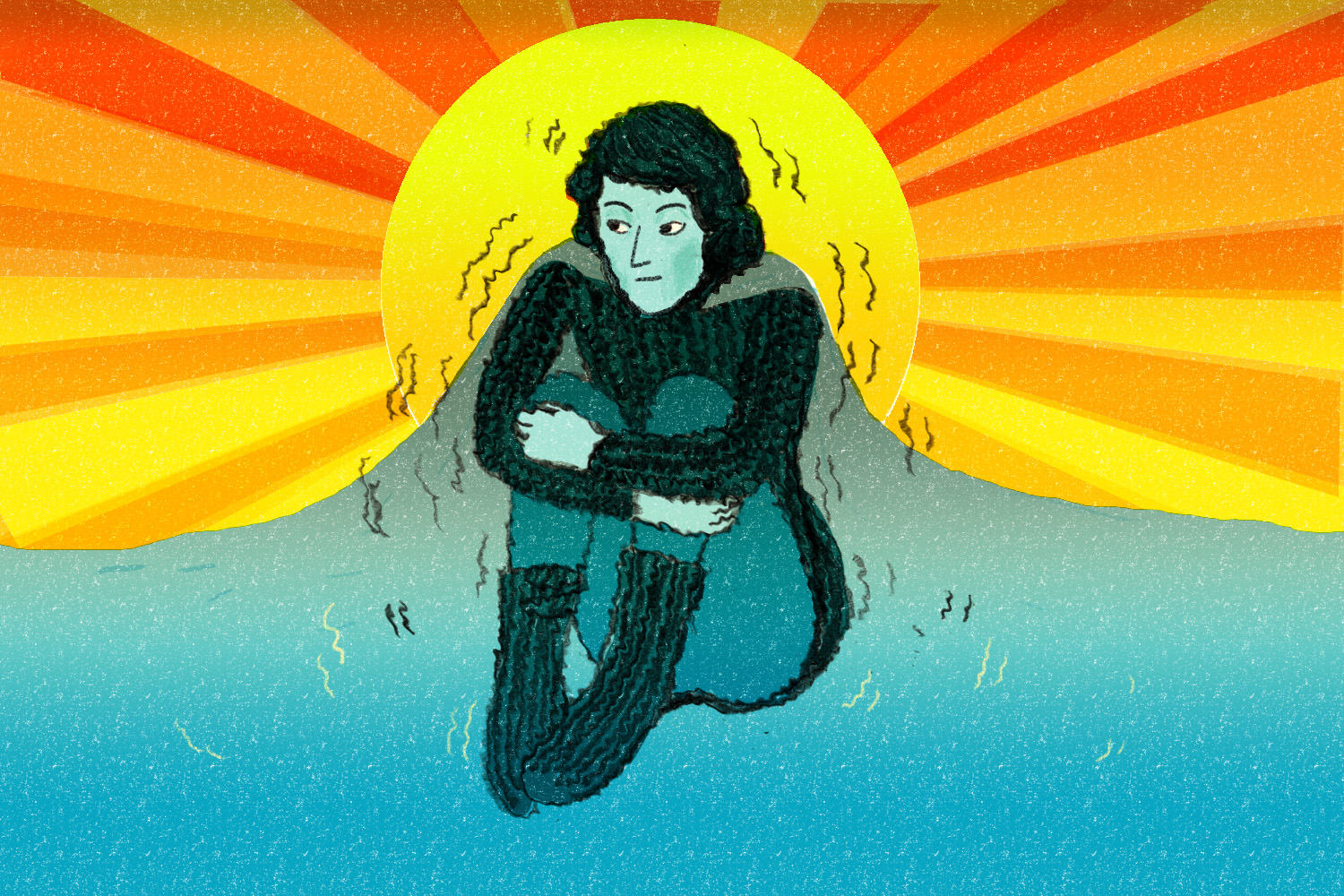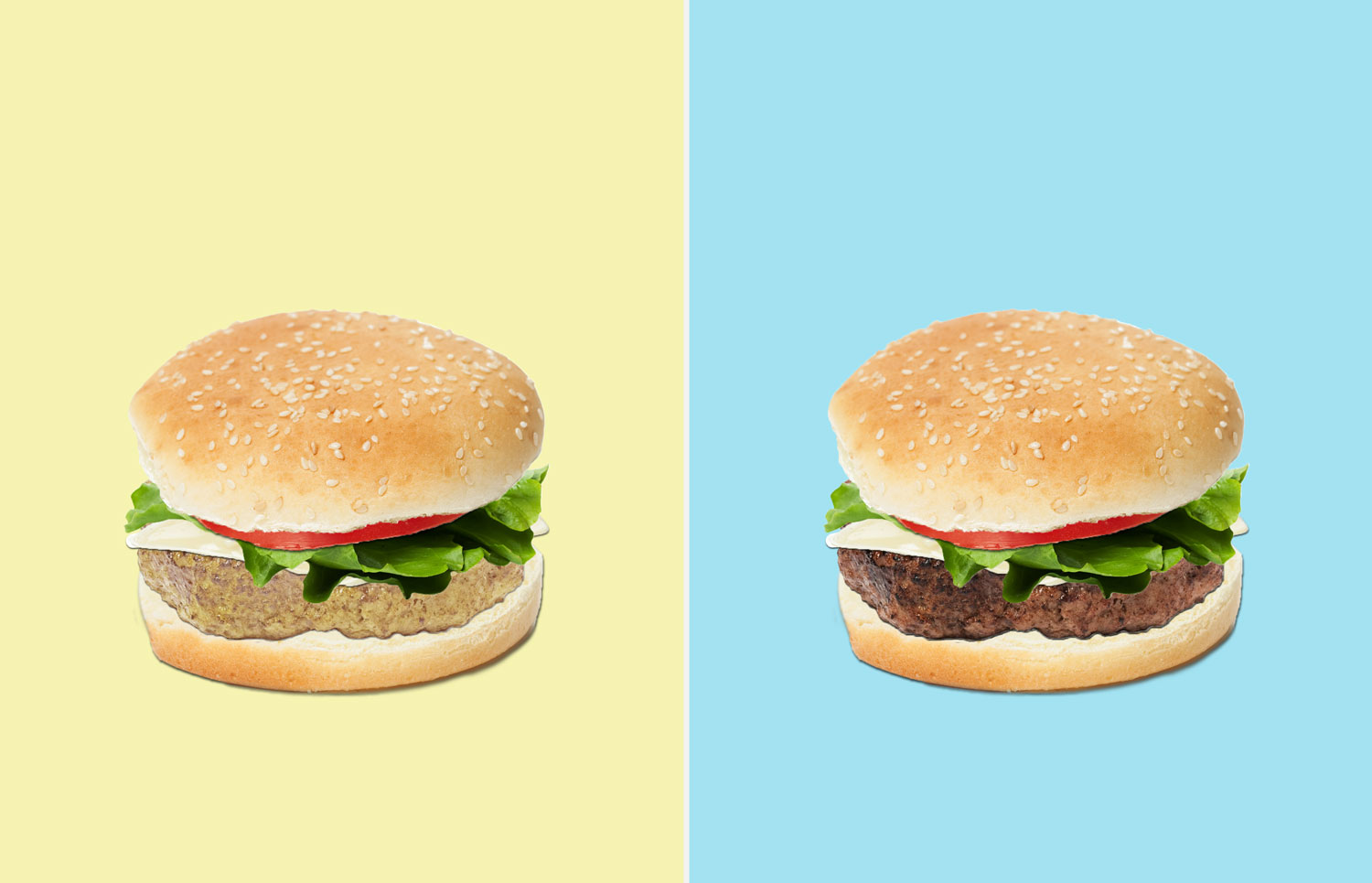
Frigid weather isn’t solely to blame for your chill.
Of course, frosty outdoor temperatures aren’t warming you up, either. Even if you’re layered in cozy sweaters and toasty corduroys, your hands and feet play an outsize role in determining how warm or cool you feel, explains Dr. Mike Tipton, a professor of human physiology at Portsmouth University in the UK.
Tipton studies the human body’s response to extreme environments—like being dunked in icy water. He says the temperature of your hands and feet dominate your overall sensation of thermal comfort. “You can be warm, but if your hands and feet are cold, you will feel cold,” Tipton says.
This is problematic for many women, who tend to have colder hands than men. A much-cited University of Utah study found that while the average woman’s core body temperature is a smidge above the average man’s, her hands are nearly three degrees cooler.
Tipton says the hormone estrogen contributes to the cold sensitivity many women experience. Estrogen triggers the mechanism that shuts down blood flow to your extremities, he explains. For this reason, research has shown women tend to feel colder during the parts of their menstrual cycle when their estrogen levels spike.
More from TIME
Your metabolism and vascular function also play major parts when it comes to your internal thermostat. “Metabolism is a more complicated concept than it’s often portrayed,” says Dr. Anne Cappola, an endocrinologist at the University of Pennsylvania’s Perelman School of Medicine. But in oversimplified terms, those with a high metabolism burn more calories and enjoy increased blood flow, both of which help heat you up, Cappola says.
“The more muscle mass you have, the higher your metabolism tends to be,” she explains. That’s another lucky break for guys, whose physiological makeup naturally endows them with more metabolism-boosting muscle—although women can counter that biological inequity with diet and exercise.
QUIZ: Should You Eat This or That?
















Cappola says your thyroid also plays an important role in your metabolism and heat production. While the condition is not common, an underactive thyroid—also known as hypothyroidism—is more prevalent in women than in men, and can lead to the kind of drop in metabolic activity that would explain your constant sensation of coldness.
There are many, many more explanations for why you may feel cold all the time, and nearly all of them have to do with poor blood circulation. Anything that messes with your vascular function—from diabetes to old age—will slow the amount of blood passing through your extremities, which in turn could cause you to feel cold, says Dr. Erika Schwartz, who’s written extensively about hormones and their role in how your feel.
So what can you do if you’ve caught a perpetual chill? Start by moving more, Schwartz advises. Movement increases blood flow, which will warm you up. “Sitting at a desk for hours at a time would make anyone feel cold,” she says.
A healthy diet and lifestyle are also essential to proper vascular function. Smoking, poor fitness, or anything else linked to bad blood flow could leave you hugging your shoulders and reaching for space heaters, Schwartz adds. She says a doctor can check your blood for signs of thyroid issues or any other health concerns that might explain your frequent shivering.
You could also embrace the cold. Tipton’s work has shown people have a built-in ability to acclimatize to cold temperatures, which is why you may feel colder in late fall and early winter than toward the end of the snowy season. (This also explains why you can comfortably bust out shorts and a T-shirt on that first 65-degree spring day, while the same thermostat reading would send you hunting for jeans and a sweater in late summer.)
If all else fails, Tipton says, just remember: warm gloves and thick socks are your friends.
Read next: You Asked: Is Sleeping In a Cold Room Better For You?
More Must-Reads from TIME
- How the Economy is Doing in the Swing States
- Harris Battles For the Bro Vote
- Our Guide to Voting in the 2024 Election
- Mel Robbins Will Make You Do It
- Why Vinegar Is So Good for You
- You Don’t Have to Dread the End of Daylight Saving
- The 20 Best Halloween TV Episodes of All Time
- Meet TIME's Newest Class of Next Generation Leaders
Contact us at letters@time.com